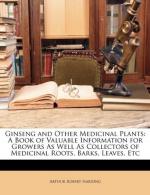|
This section contains 616 words (approx. 3 pages at 300 words per page) |

|
The leaf is the principal energy-capturing and food-producing organ of plants. Leaves are attached to and supported by the plant stem, which also provides the leaf with water and inorganic nutrients from the soil. They usually have a flattened surface, called a blade (or lamina) which absorbs radiant energy from the sun, and a slender stalk called the petiole, which supports the blade and connects it to the stem. Leaves provide nourishment to the plant by converting light energy into chemical energy used for growth and development. The conversion process is called photosynthesis and requires uptake of carbon dioxide gas from the atmosphere and the subsequent release of oxygen. Tiny pores, called stomata, in the surface of the leaf facilitate this exchange of gases. The stomata can open and close as needed to support rapid movement of gases into and out of the leaf. The extensive surface area...
|
This section contains 616 words (approx. 3 pages at 300 words per page) |

|


